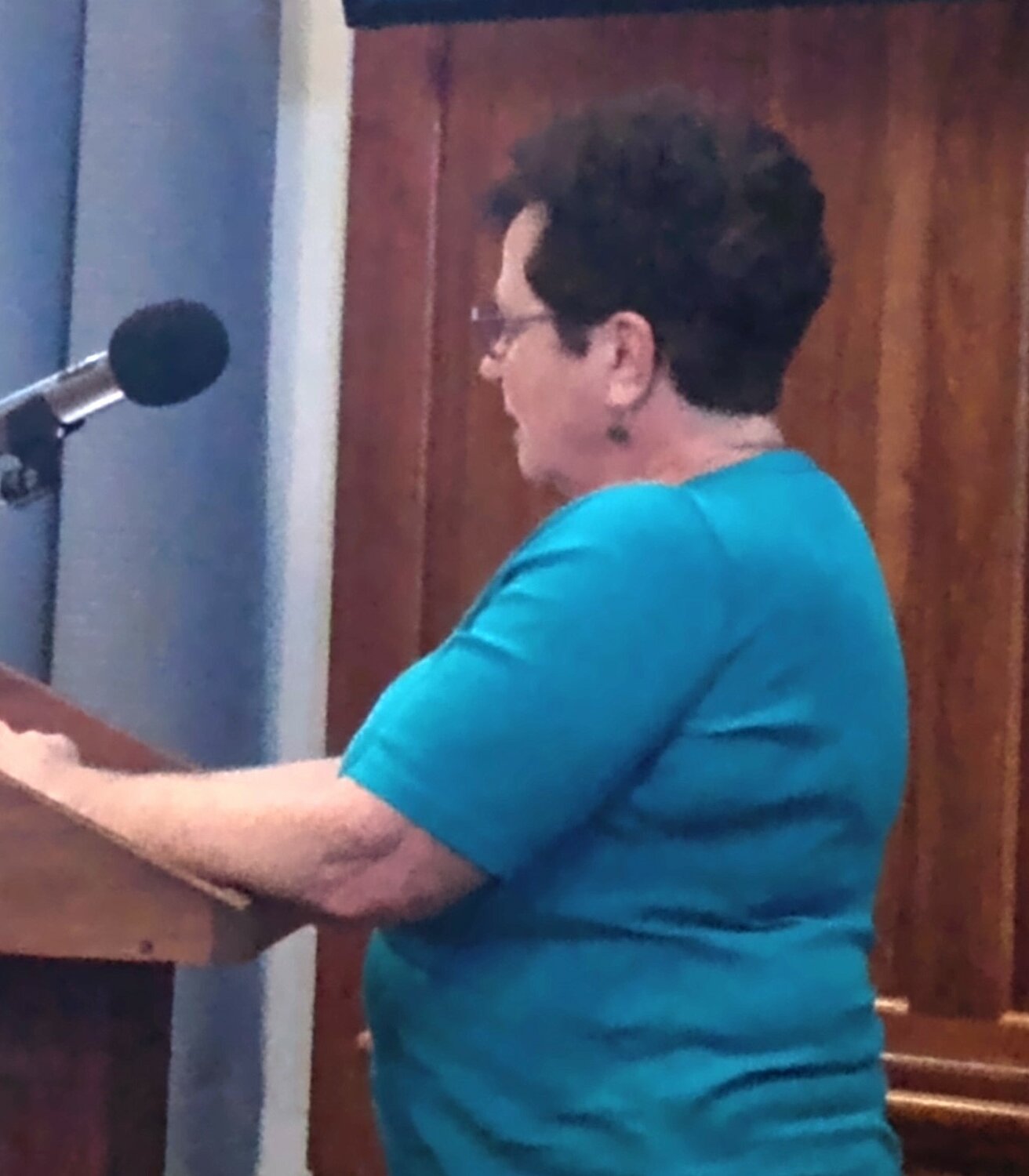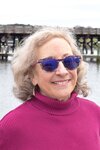Dorchester debate: What’s in a bridge’s name?
In 1987, 20 years after the Pine Street Elementary School had burned down during Civil Rights protests, a sorely needed new bridge connecting Cambridge and Trappe was constructed.
The driving …

You must be a member to read this story.
Join our family of readers for as little as $5 per month and support local, unbiased journalism.
Already a member? Log in to continue. Otherwise, follow the link below to join.
Please log in to continue |
Dorchester debate: What’s in a bridge’s name?
In 1987, 20 years after the Pine Street Elementary School had burned down during Civil Rights protests, a sorely needed new bridge connecting Cambridge and Trappe was constructed.
The driving force behind getting the structure to replace the aging 1930s bridge, was State Senator Frederick C. Malkus Jr. of Dorchester County.
His fellow legislators, who often sparred with conservative Democrat Malkus over issues including gun control and forced desegregation, nevertheless united in voting to name the bridge in his honor. Vetoed by Gov. Harry Hughes, lawmakers voted to override the veto, and it’s been the Malkus Bridge ever since.
On Monday, May 20, the bridge name again came to the forefront during the city’s regular City Council meeting, brought there by Carl Snowden, former Civil Rights director of the Maryland Attorney General’s Office, requesting support for a resolution asking state officials, who have jurisdiction, to rename the Malkus Bridge in honor of 1960s Civil Rights activist Gloria Richardson.
A famous photo taken of Richardson during the National Guard’s deployment captured her resolute stance, holding a soldier’s gun at bay.
Here where it happened, she’s been belatedly honored, with a mural aside the Pine Street Deli and a street renamed for her in the Greenwood Avenue neighborhood.
As Snowden addressed the council and the standing-room-only crowd, he cited North Carolina replacing its U.S. capitol statue of a segregationist governor with Billy Graham, who “a new generation felt better represented the state,” he said.
He also recalled the “wisdom of the community” in neighboring Talbot County in removing The Talbot Boys confederate war memorial statue which had long entrenched on courthouse grounds.
Snowden referenced the removal of Supreme Court Chief Justice Roger Taney’s statue from the Maryland State House by Gov. Hogan and the legislature. Taney had authored the 1857 Dred Scot decision ruling that Black people could never be citizens.
“Local, state and even national government is beginning to question, ‘Who do we want to name buildings and bridges after, people who tend to divide us or people who bring us together?’” Snowden said.
Seconding Snowden’s resolution request was Erma Barron of Kappa Alpha Kappa sorority, which was represented by numerous Eastern Shore members present.
“You may know some of our other members,” Barron said, reciting the names Coretta Scott King, Maya Angelous, Vice President Kamala Harris and Gloria Richardson.
Richardson was “an inspiration to all of us, and an icon in our community,” Barron said, recalling 1960s sit-ins and protests while attending Morgan State University, “to fight for our full rights as citizens,” she said.
“I’d look to people like Gloria Richardson to give us strength and fortitude to be spit upon, to have things thrown at us, and even to go to jail,” Barron said.
Learning about Richardson’s role in Cambridge, Barron made it her personal mission “to make sure everyone knows about her, to honor her and give her the respect she is due,” she said.
“Gloria Richardson stood firm. She stood strong. And it wasn't just for herself, or for people like me. When you talk about human rights, you talk about everyone,” Barron said.
Rev. James Jones of Worcester County, Convener of the Caucus of African American leaders throughout the Eastern Shore, spoke next. “I’d like to present to you an opportunity to educate young people in your community,” he said, noting frequent questions he’s received from them about why government allows people who treat us so differently to be honored.”
In response to Snowden’s question about whether the introduction of a resolution would include a public hearing, Mayor Stephen Rideout explained that first he wanted to learn more.
“You’ve made some assertions about Senator Malkus; his history is not as well known to me as Gloria Richardson’s. I think before the council could do anything, they would have to have a public conversation about it and look at all the facts that might be available,” he said.
Commissioner Sputty Cephas expressed appreciation for the energy and the large turnout.
“We have a lot of issues our community is struggling with. Let’s keep momentum going, let’s keep fighting as vigorously for things we can change,” Cephas said.
Terry D. Wheatley, Dorchester County Register of Wills, spoke out against changing the bridge name.
“I worked for him for 23 years, driving back and forth from Annapolis to Dorchester County daily during legislative sessions.
“In his law office, he met with as many Black clients as white, because they knew they could trust him,” she said.
“The honorable Frederick Malkus did so much for his constituents and should be given credit for that. If Mr. Snowden doesn't want to cross the Frederick C. Malkus bridge, I suggest he stay over in the other side,” Wheatley said.
Malkus’ daughter Betsy spoke next, not about the bridge, but “about a woman of peace and understanding, possibly the best example of creating unity in this city, this county, for the last 30 years or more, Ms. Shirley Jackson,” she said, with whom she had worked alongside at Handsell House.
”She was always regarded as our North Star, our guiding light, our touchstone, working tirelessly to make the county a better place. So, I've created a Juneteenth celebration dedicated to her,” Malkus said.
“In exploring Jackson’s genealogy, we found that her great-great-grandfather had been born into slavery at Handsell Plantation, and that many military men were in her family,” Malkus said.
Working with Dr. Clara Small, noted African American historian, Malkus also learned that 543 Black men had served from Dorchester County in the United States Colored Troops.
Of those, “130 men from here were present at the original Juneteenth, on the ground in Indianola Texas when the Emancipation Proclamation was read there. So, I got together with Adrian Holmes (founder of Alpha Genesis Community Development Corporation) to create this special Juneteenth event,” Malkus said.
In an interview following the meeting, Malkus expressed gratitude for the tremendous outpouring of community support she’d received since Snowden “began attacking my father,” she said.
“I don’t wish to spread anger, but understanding, so we can move forward. That’s why I created the Juneteenth to honor the Dorchester men who served in the ‘U.S. Colored Troops.’ If we can honor some good things, then perhaps the painful past will begin to fade,” Malkus said.
Cambridge resident Dave Thatcher spoke next, pointing out that “naming things after people is a sign of the times, and times change. Once all named for white people, now being named for Black people. It's divisive,” he said, suggesting instead to stop naming bridges and buildings after people, and instead name them according to location.
“The Choptank River Bridge, the Arlington Memorial Bridge, the 14th street bridge in DC, the Empire State building. They aren't named after people, and the names will last forever. And there's no divisiveness with those names. So, take the name off the bridge and call it the Choptank River Bridge. Do the same with the Frances Scott Key Bridge, call it the Patapsco River Bridge.”
(The Caucus of African American Leaders wants to change that bridge’s name, from Key, who owned slaves, to Parren J. Mitchell, Maryland’s first Black congressman.)
Council President Lajan Cephas commented, “I believe the role the city should take at this time should be more of a fact finding one. There's a lot of history, and a lot of families on both sides, and I want to be respectful of the families,” she said.
First Ward Commissioner Atkiss said, “Heroes are personal. Everyone's experience is different, everyone’s inspiration is different, and there’s no way everyone's going to agree on this subject. Part of me really harkens to Mr. Thatcher’s comments, that as long as we're turning infrastructure into monuments to people, there's always going to be disagreement. So, part of me supports naming the bridge after this beautiful part of the world we live in, leaving out the divisiveness,” she said.



 By
By 



